A Dying Declaration Can Bring Life To Fiction
The language of cops and crime scene investigators is certainly something that can be incorporated into works of fiction for an added layer of realism. Of course, the writer’s work shouldn’t read like a law enforcement dictionary, but the use of proper terminology, when appropriate, is definitely a nice touch to any crime novel.
Here are a few terms you may find useful to your works-in-progress.
ABFO scales (often referred to as “scales”) – “L” shaped plastic pieces used in crime scene photography. The scales are often marked in millimeters for size comparison(s). Circles, black, white, and gray bars on the scales are there to provide exposure determination, and to assist in distortion compensation. AFBO = American Board of Forensic Odontology.
Image – Sirchie Fingerprint Laboratories
ALS (Alternate Light Source) – lighting equipment used to enhance/visualize potential evidence.
Image – Sirchie Fingerprint Laboratories
Case File – A collection of documents pertaining to a specific investigation. The case file specific to a particular homicide investigation is often called the “murder book.”
Case Identifiers – The specific numbers or alphabetic characters assigned to a specific case for the purpose of identification. For example – Case #ABC-123 or #987ZYX
Chase – The empty space inside a wall, floor, or ceiling that’s used for plumbing, electrical, and/or HVAC ductwork. A chase is a common hiding spot for illegal contraband and/or evidence (murder weapons, narcotics, stolen items, etc.).
Chain of Custody – the legal process of documenting the chronological history of pieces of evidence. The documentation includes the signature/initials of each person who at some time or another had possession of a particular piece of evidence. The dates and times of possession are also recorded.
Pre-printed chain of custody label – Sirchie Fingerprint Laboratories
It is not unheard of for each person in “the chain” to be summoned to court to testify that they indeed had possession of a particular piece of evidence at the time documented. And, they’re often asked to explain their purpose of having and handling the evidence.
For example, a laboratory scientist may be in the chain of custody for a suspected marijuana case. Her purpose of possessing the item on, for example, January 12, 2013 was to conduct scientific testing to determine the identity of a green, leafy, plantlike material found inside a wall chase in the bedroom of a suspected drug dealer.
Dying Declaration – Statement about a crime made by a person who is about to die. (“The woman who shot me was…Ima…Ima Gunner.”)
Electrostatic Dust Lifter – A device that electrically charges a piece of plastic film that’s placed over a print made in dust (a shoe or palm print, for example), which in turn causes the dust to adhere to the film. The result is a perfectly captured print that’s ready for photographing.
Author Donna Andrews moves in for a closeup shot of an electrostatic dust lifter at the 2012 Writers’ Police Academy – Sirchie Trainer Robert Skiff
Latent Print – A print that’s not readily visible to the human eye.
Outsole – The portion of shoes or other footwear that contacts the ground.
Projectile Trajectory Analysis – the process used to determine the path traveled by a high-speed object (bullets, arrows, etc.).
Trace Evidence – Small bits of evidence, such as fibers, hairs, glass fragments, gunshot residue, etc.
Gunpowder particle test kit – Sirchie Fingerprint Laboratories
Evidence vacuum for the collection of small/trace evidence – Sirchie Fingerprint Laboratories
* * *
Author Melanie Atkins during the Evidence Collection Course at the Sirchie compound near Raleigh, N.C. (Melanie is the “good cop” half of the Castle reviews on this blog) – Patti Phillips photo
By the way, Sirchie Fingerprint Laboratories is a longtime sponsor and supporter of the Writers’ Police Academy. They’ve been there for us, and you, since day one.
Sirchie experts also provided photos and information for my book on police procedure. The company is extremely supportive of writers.
Of course, I was quite familiar with Sirchie long before I began writing. As a police investigator, I used their products for many, many years. They are second to none.

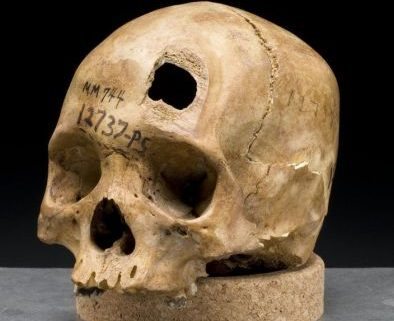
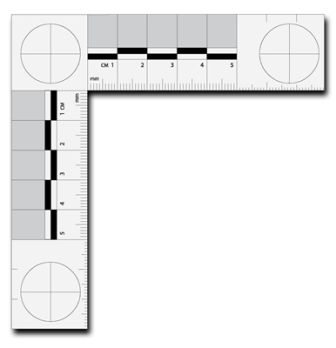
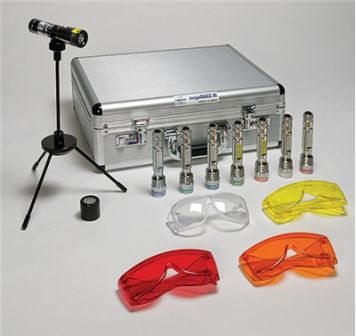
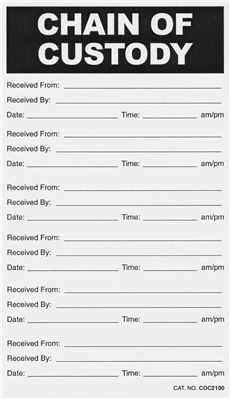
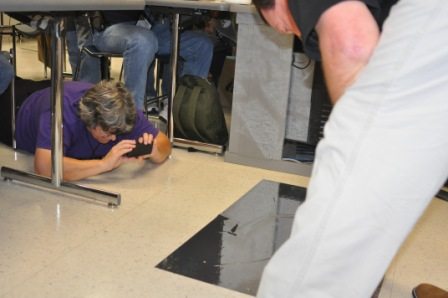
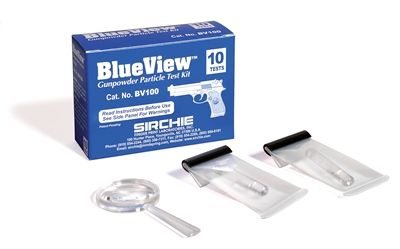
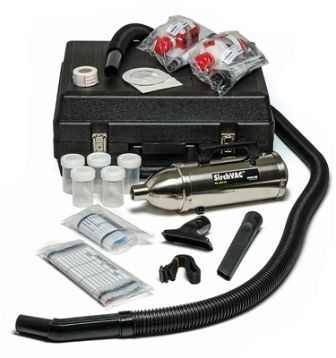
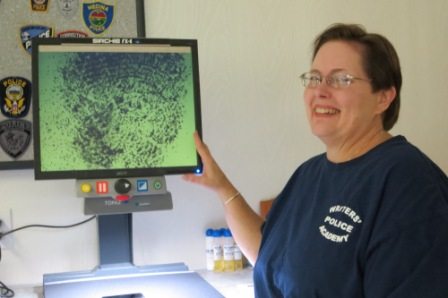



Love these details.Thank you!
Great help here, Lee. These are the details that can make such a difference in how the book feels. As always, you bring a lot to the table.
Gritty details rock!
Great post, Lee. Thanks.